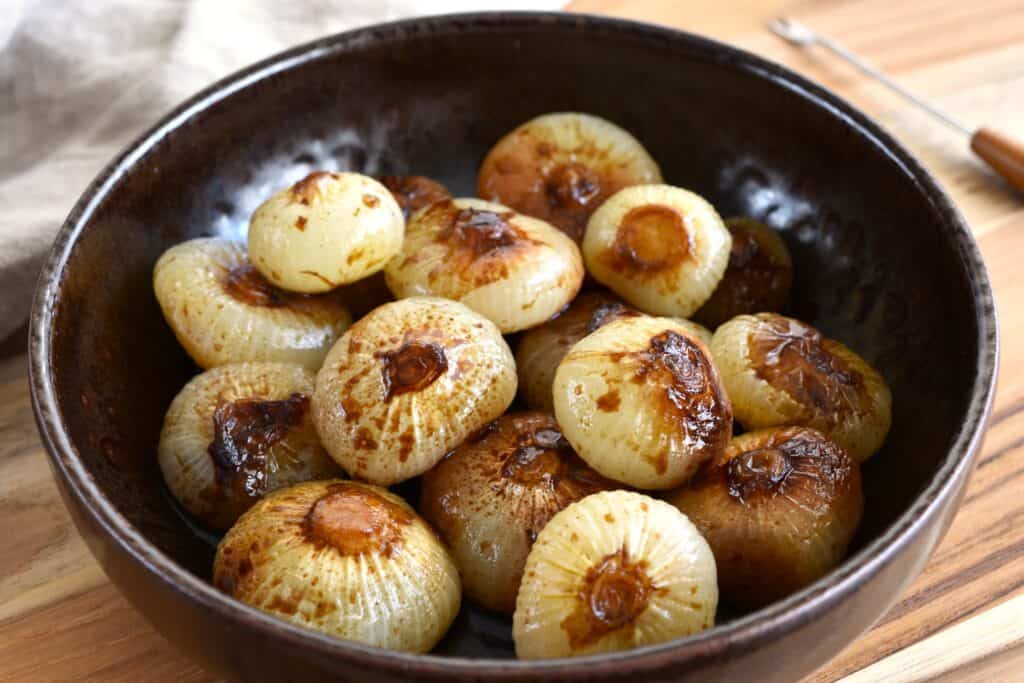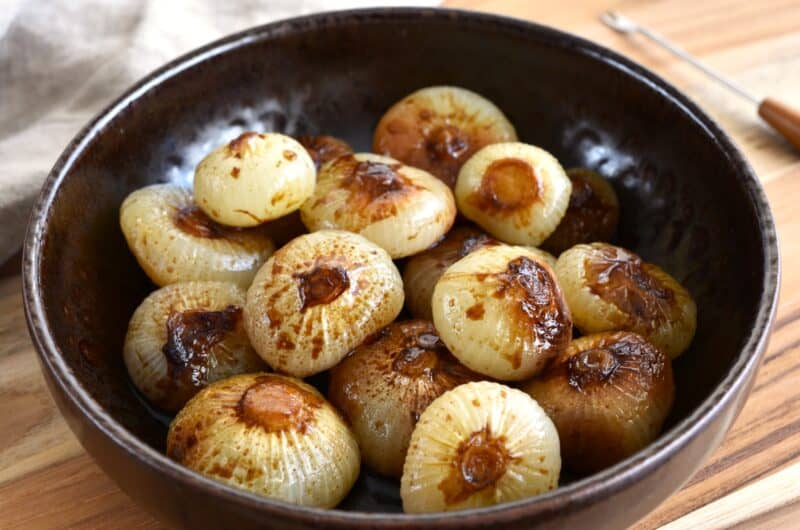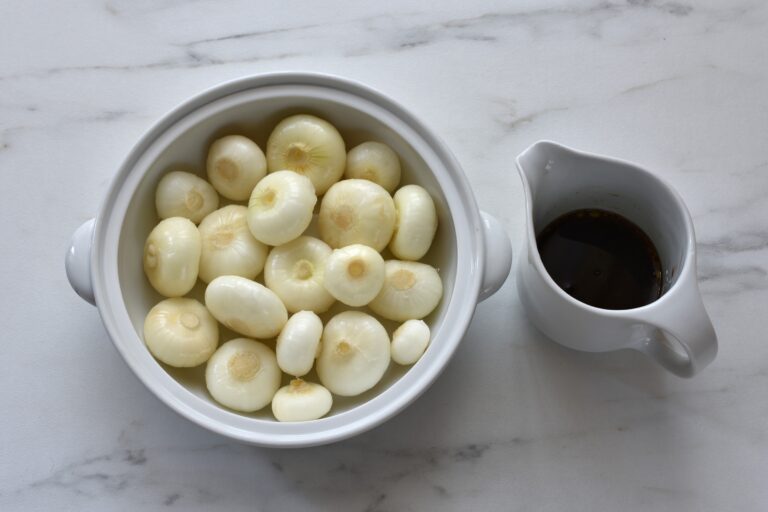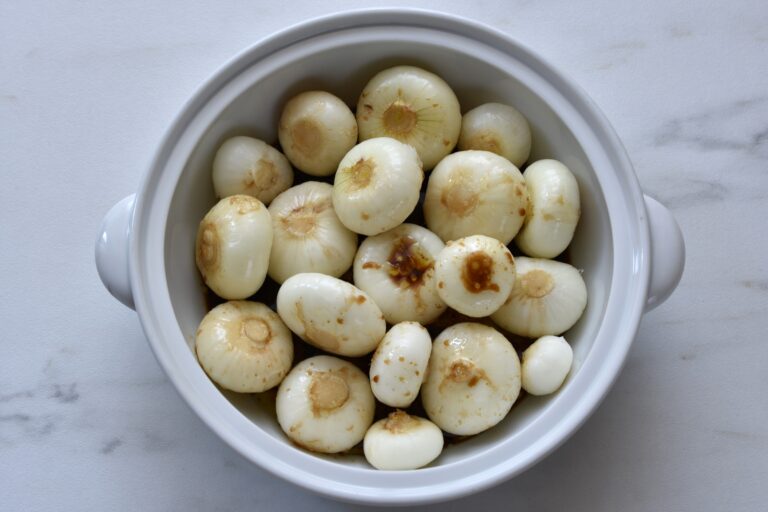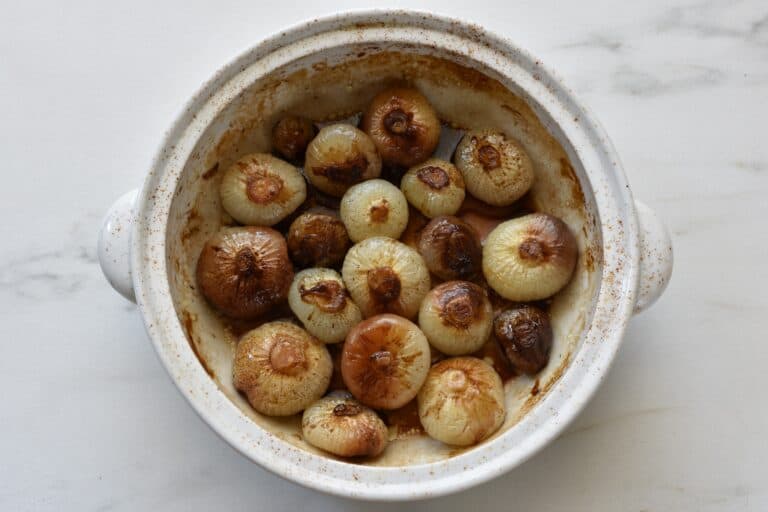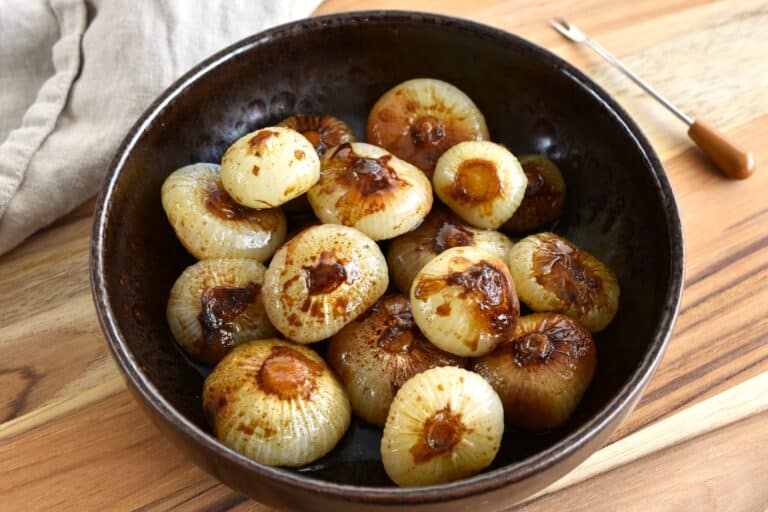These roasted balsamic onions are tasty little morsels of deliciousness that are perfect as part of an antipasto or buffet spread. Your guests will love their sweet and sour, tangy flavour. They’re exquisite when paired with vegan cheeses like ricotta and brie. This recipe is quintessentially Italian, so borettane onions are the most obvious choice. However, you can use any other kind of bite-sized onion or even halve larger onions for this recipe. Although pearl onions or shallots will work just fine, borettane onions are significantly sweeter, and so all the better for caramelising.
As they roast in the oven, the onions absorb all the tangy, umami flavours, softening and caramelising while the balsamic vinegar reduces to a syrupy glaze.
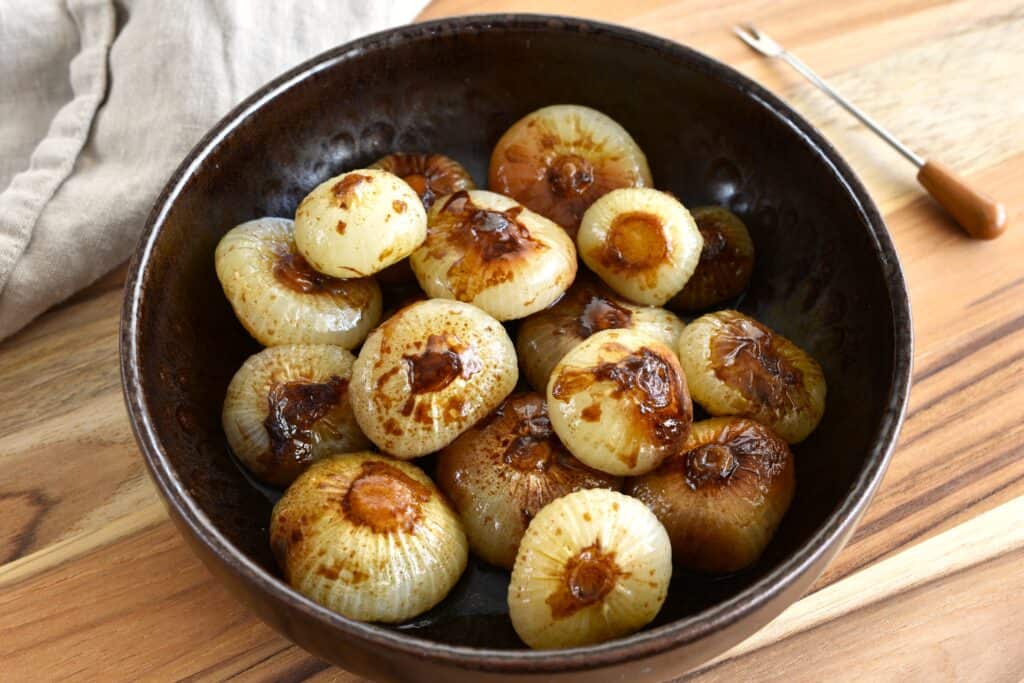
What are borettane onions? (Also known as cipollini or cipolline onions)
The borettana onion is an Italian heirloom variety from Boretto, in the Emilia-Romagna region. The bulbs are flat and relatively small at 3 – 8 cm in diameter. They look like little discs and are covered in a thin, yellow papery skin that adheres tightly to the flesh. The layers underneath are unusually thick – if you have to remove a layer for any reason, that’s it, half the onion is gone. In English-speaking countries, they’re called cipollini or cipolline onions. Until recently, you would only find them in Italy or in posh restaurants, but now they seem to be available pretty much everywhere.
How to make Italian-style roasted balsamic onions
Roasted balsamic borettane onions are so easy to make – you hardly need a recipe. It’s important to maintain the right proportion of onions to liquid so that they neither dry out in the oven nor remain overly wet. Apart from that, they’re really easy to make. Top-quality ingredients are key; Italian balsamic vinegar and extra virgin olive oil, rounded off with a simple seasoning of sea salt and optional black pepper.
Ingredients
The exact quantities of each ingredient are indicated in the recipe card at the bottom of this page.
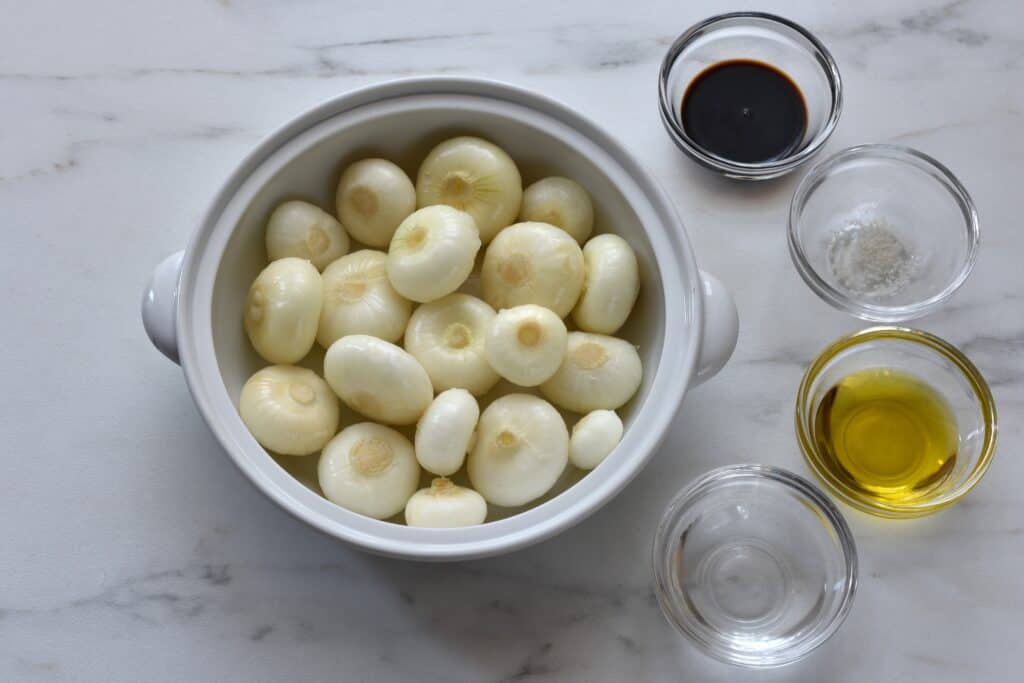
Borettane (cipollini) onions
If you can get hold of them, I recommend using borettane onions (also known as cipollini or cipolline onions). If you can’t find those, you can substitute them with pearl onions, shallots or scallions. Some people cut regular red onions in half and use those. Where possible, try and use onions that are roughly the same size. This ensures that the onions cook evenly. If you buy them ready-peeled, use them the same day or soon after because they tend to spoil very quickly.
Balsamic vinegar
You need balsamic vinegar for this recipe; other kinds of vinegar won’t work. Balsamic vinegar is a dark, concentrated, intensely flavoured vinegar originating in Modena, Italy, made from grape must (freshly crushed grape juice with all the skins, seeds and stems). The term aceto balsamico is unregulated, but there are three protected balsamic vinegars. Look out for these labels: Aceto Balsamico Tradizionale di Modena DOP (traditional balsamic vinegar of Modena), Aceto Balsamico Tradizionale di Reggio Emilia DOP (traditional balsamic vinegar of Reggio Emilia), and Aceto Balsamico di Modena IGP (balsamic vinegar of Modena). These are all vegan.
Olive oil
I recommend using good-quality extra virgin olive oil for this recipe. Olive oil withstands heat well, and it’s the most widely used oil throughout Italy and Mediterranean countries. It’s important to use quality ingredients in a dish like this.
Water
You’ll need a small amount of water in the oil/balsamic vinegar mix so that it doesn’t dry out or burn in the oven.
Salt
I use unrefined sea salt in all my recipes. Read more about the benefits of using natural unrefined sea salt here.
Pepper
Pepper is optional in this balsamic borettane onion recipe. I usually omit it, but some people add a twist of black pepper – it’s up to you.
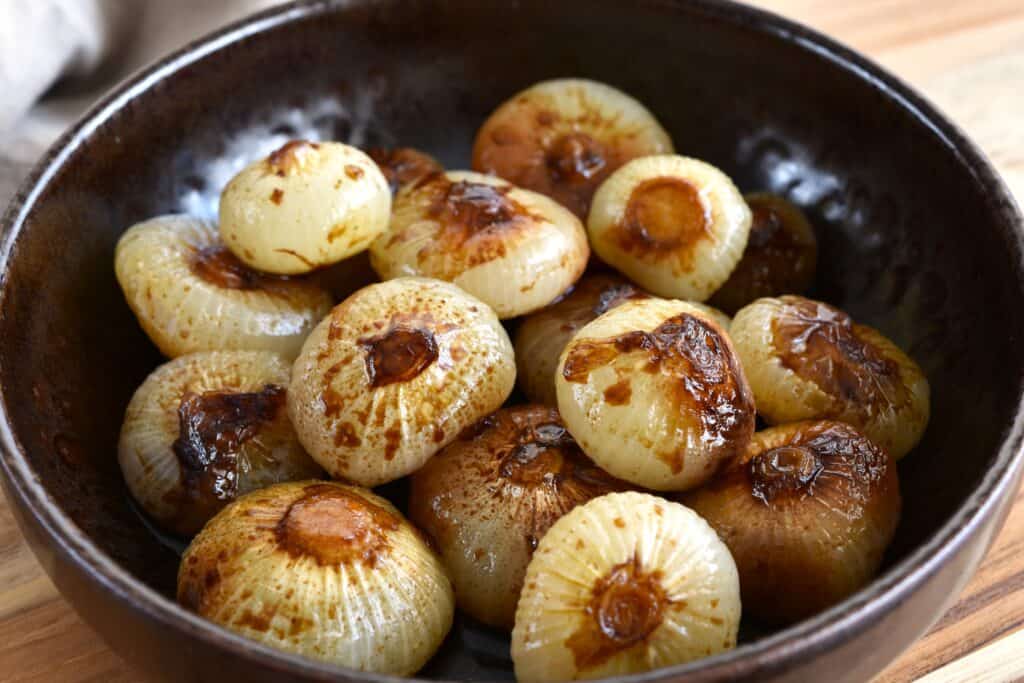
How to roast borettane onions in balsamic vinegar
Instructions
You’ll find step-by-step instructions with photos in the recipe card at the bottom of this page.
- Peel the borettane onions if they still have the skins on. The best thing to do is soak them in warm water for a while, which will make it much easier to remove the dry outer skin. In Italy, they usually sell them ready-peeled because everyone knows they’re a pain to peel. Leave the onions whole unless you’re using normal red or yellow onions, in which case you can cut them in half crosswise.
- Mix the balsamic vinegar, olive oil, water and salt in a small jug or a cup.
- Arrange the onions in an oven dish large enough to accommodate them all in a single layer.
- Pour the balsamic vinegar and oil mix all over the onions making sure they’re well coated.
- Roast them in the oven at 210 °C for 30-40 minutes, turning them once halfway through the cooking time.
How to serve balsamic roasted onions
Transfer the onions to a serving dish and serve hot, warm or cold.
Italian people serve these roasted borettane onions in balsamic vinegar as part of an antipasto or buffet spread. In this case, they are usually served cold.
You can also serve them hot, as an accompaniment for a main course like vegan polpettone, sausages or burgers. When serving them as a hot side dish like this, you could even add a knob of vegan butter. I never add butter if I’m serving them cold because it solidifies.
Roasted borettane onions are also a great filling ingredient for burgers, sandwiches, and wraps. My favourite way of eating them is as a snack with homemade sourdough bread and vegan cheese.
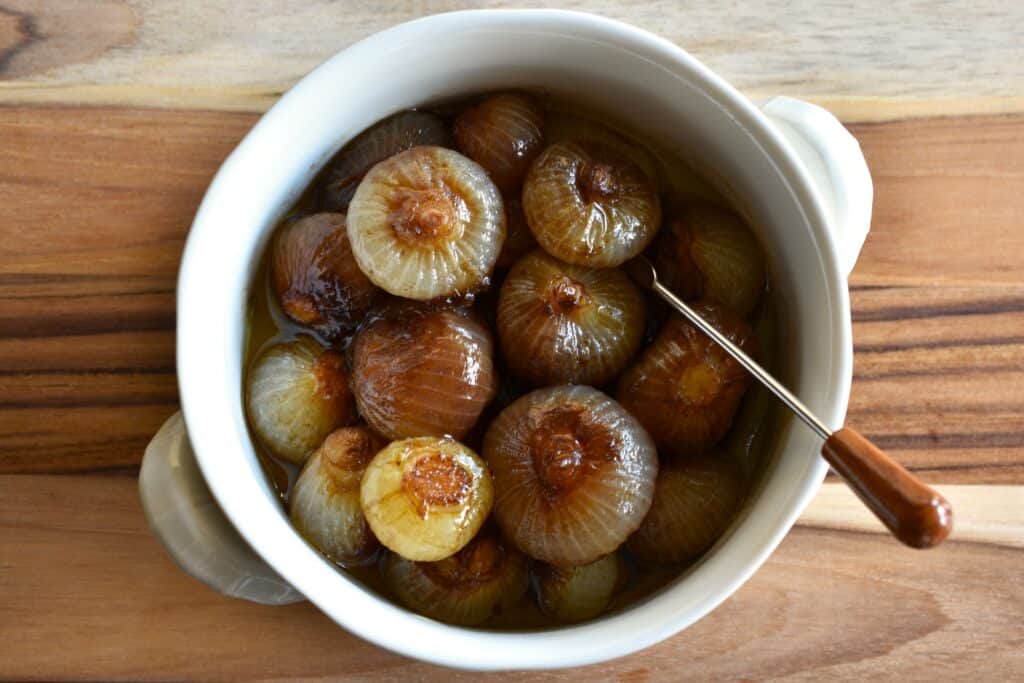
How to store leftover roasted balsamic borettane onions
Put any leftover roasted balsamic onions in an airtight container in the fridge, where they’ll keep for at least a week.
Can you freeze balsamic borettane onions?
You could freeze them in a pinch, yes. However, freezing will alter the consistency of the onions, so only freeze them if you really need to. They’ll freeze reasonably well for a short period.
To defrost, leave them out on the counter at room temperature before briefly reheating them in the oven. If necessary, add a tablespoon of water to prevent the juices from drying up.
I’m sure you’ll love these Italian roasted balsamic onions! If you try this recipe and like it, I’d love to hear about it! Let me know in the comments below, or take a quick pic and share it on social media. Don’t forget to tag me on Instagram or Facebook @vegan_hot_stuff – I love seeing your re-creations!
Before you go, maybe you’d like to have a look at some other delicious vegan recipes…
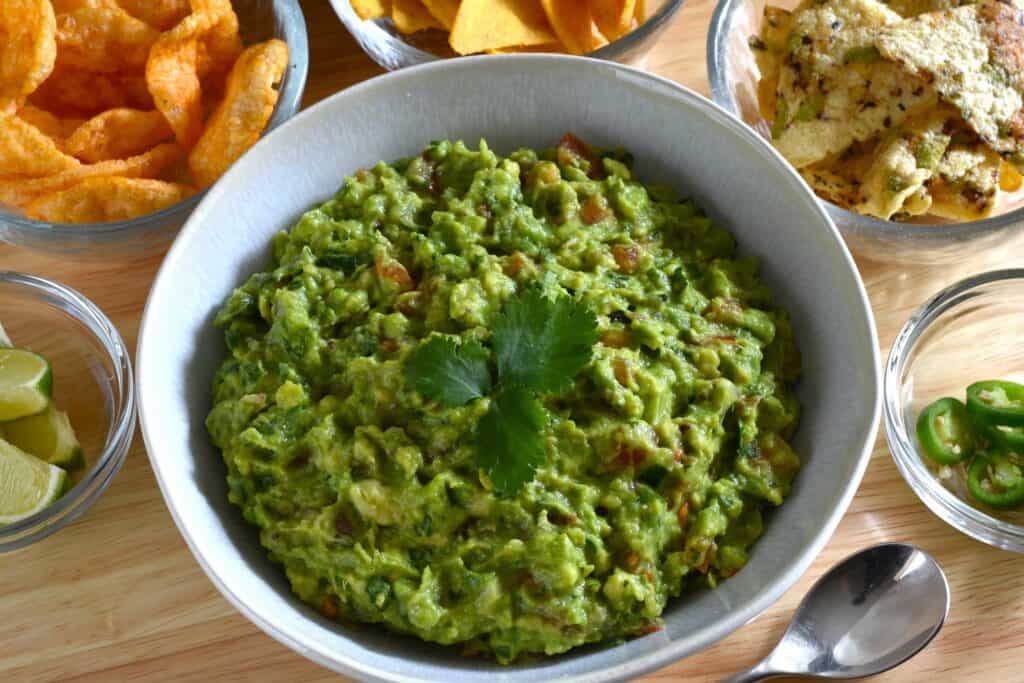
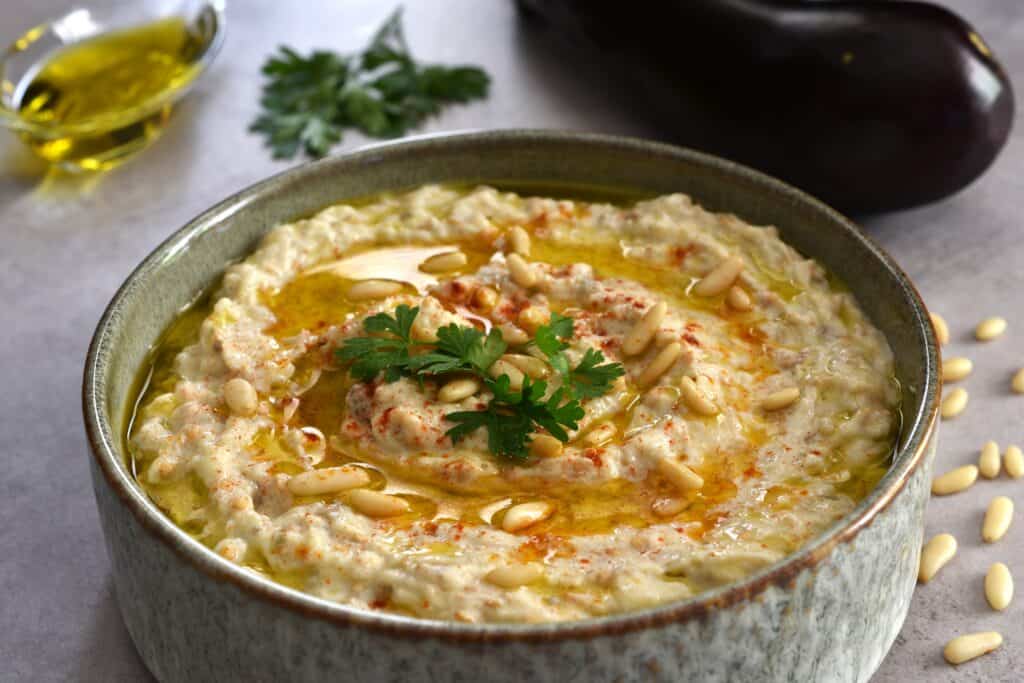
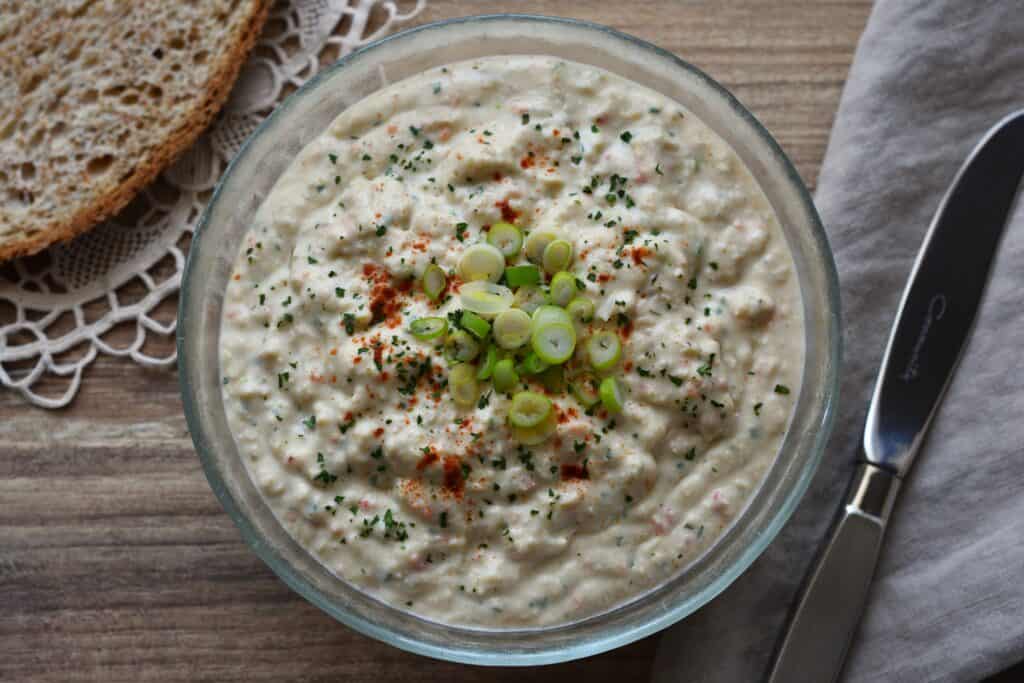
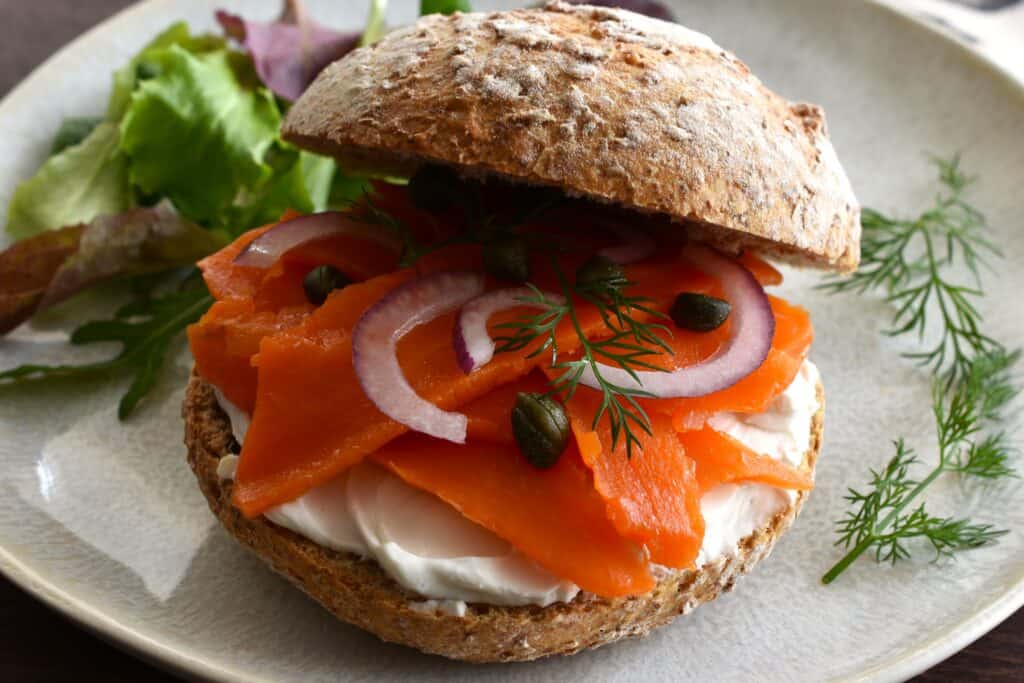
I hope you liked this recipe for Italian balsamic onions! If you did, it would be great if you could give it 5 stars and leave a comment below! It helps other readers to find my content and posts and ultimately makes my blog more successful! Thank you so much for your support! Deborah xx
Would you like to receive my recipes as soon as I publish them? Subscribe below!


